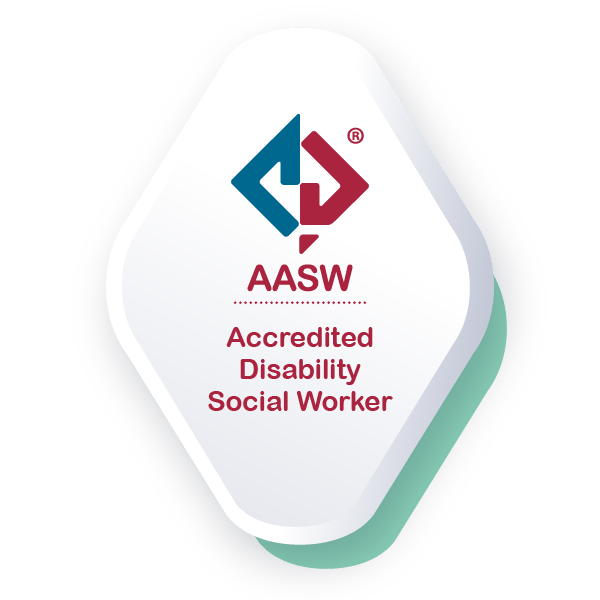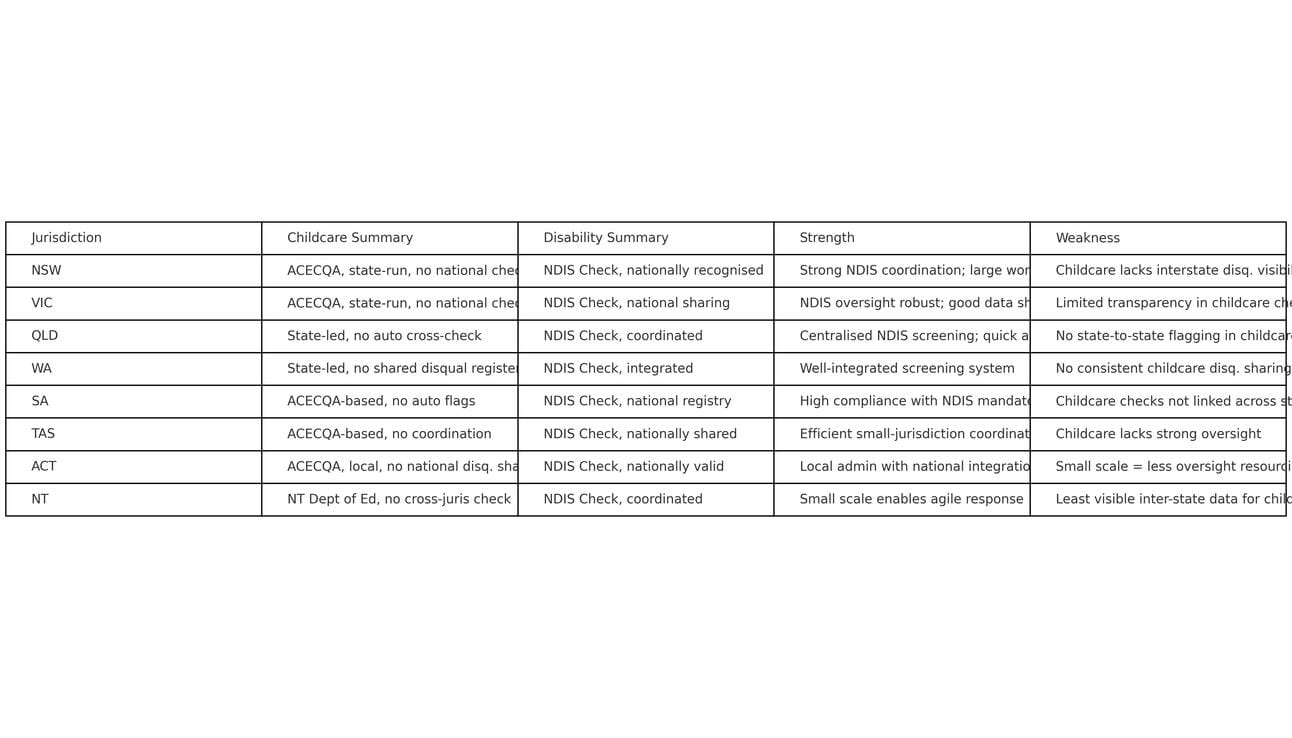
Accredited Disability Social Workers (MAASW)
Accreditation vs. Regulation: A Tale of Two Care Sectors
The shocking case of a childcare predator slipping through state checks has reignited urgent questions about the gaps in our national safeguarding systems: especially in the unregulated disability support sector.
It’s the worst kind of betrayal. A young man entrusted to care for children—Joshua Brown—has now been charged with more than 70 offences of child sexual abuse, committed while working at 20 childcare centres across Australia. He passed every background check.
The details are gut-wrenching, but even more shocking is the failure of our fragmented regulatory system to detect and stop him.
Brown held a valid Working With Children Check. He moved between jurisdictions. No single authority connected the dots. And that raises an uncomfortable question: could something similar be happening in the disability sector?
Australia's childcare sector operates under the National Quality Framework (NQF). This includes mandatory background checks like the Working With Children Check (WWCC), but there are still gaps.
In contrast, the NDIS mandates the NDIS Worker Screening Check for anyone working with NDIS participants. This national check assesses a person's suitability to work with people with disability, replacing individual state and territory police checks and WWCCs for NDIS-funded services.
But the Disability Royal Commission heard countless testimonies detailing horrific abuse, highlighting systemic failures and the ease with which some individuals were able to exploit positions of trust.
The key difference lies in the scope of direct oversight. Childcare centres are highly visible, often with multiple staff present and a structured environment. Disability support can be far more individualised and decentralised, making direct monitoring challenging.
While the NDIS has made strides in strengthening safeguards, the recent events in childcare must serve as a powerful catalyst for continuous vigilance in the disability sector.
Advocacy groups like Disability Advocacy Network Australia (DANA) and People with Disability Australia (PWDA) have long championed for stronger accreditation and regulation.
The problem is there is still no central, national register tracking misconduct or professional standards. Instead, the system is split between states and the NDIS Quality and Safeguards Commission, with wide loopholes for those working outside the formal NDIS network.
Yes, the NDIS Worker Screening Check exists and flags risks across jurisdictions. But only for workers inside the system. State-run disability programs, informal carers, and private arrangements often fall completely outside these protections.
A national failure, and a sector still unprotected
In the aftermath of the Brown case, the childcare sector is scrambling. Providers are demanding a national employment register. The federal government has promised reviews and politicians are rushing to be seen to act. Sometimes being seen to legislate appears to be almost as important as the legislation itself.
In the disability sector NDIS Quality and Safeguards Commission is responsible for providing protection. It can issue bans, coordinate investigations, and its screening check is valid nationwide. But this only applies to NDIS-funded services. If a person hires a support worker privately, outside the NDIS, there is no guarantee of protection.
And this is where the parallels with childcare become alarming.
There is no mandatory national accreditation unless the worker is also a nurse or allied health professional. That means someone who’s been dismissed—or even banned—from one role could reappear under a new name in another state, or simply begin working informally.
Is a national register the answer? Perhaps. But even here systems fail. As the Brown case shows, predators can exploit even background checks. Total safety may be a noble goal, but perfect systems rarely exist.
Still, improvements can be made.
Disability advocacy groups such as People with Disability Australia (PWDA) and Inclusion Australia have long pushed for stronger national safeguards. They’re calling for:
Mandatory worker registration across all support roles.
Centralised reporting of misconduct and disqualification.
Expanded NDIS-style screening for all disability services, including non-NDIS ones.
But there’s resistance. Introducing tighter controls means higher costs, more bureaucracy, and could reduce the number of available workers, already stretched in regional areas. That’s the trade-off: safety versus accessibility.
Until regulation catches up, people with disability remain exposed to risks they shouldn't have to face.

State-by-state regulations for NDIS workers
